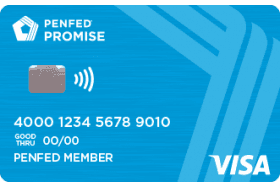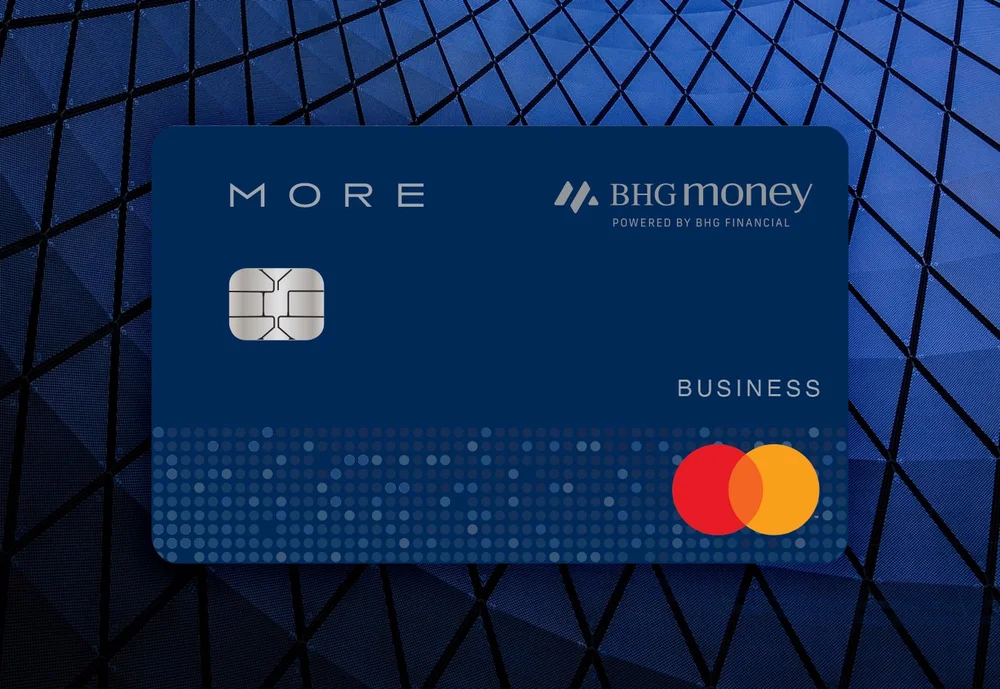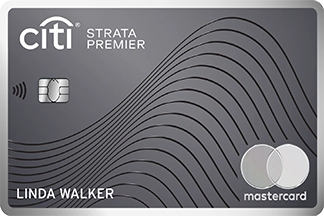- myFICO® Forums
- FICO Scoring and Other Credit Topics
- General Credit Topics
- Re: Building a credit
- Subscribe to RSS Feed
- Mark Topic as New
- Mark Topic as Read
- Float this Topic for Current User
- Bookmark
- Subscribe
- Mute
- Printer Friendly Page
Building a credit
Is your credit card giving you the perks you want?
Browse credit cards from a variety of issuers to see if there's a better card for you.
- Mark as New
- Bookmark
- Subscribe
- Mute
- Subscribe to RSS Feed
- Permalink
- Report Inappropriate Content
Building a credit
Hi everyone. Im 21 yo moved to States about a year ago from Russia. Recently started working on my credit score (in Russia we don't have such a thing to worry about, so it's all new to me). Apparently in America you better have solid CS and history to get best offers for cars/credit cards and even renting apartment. Well, thats something new to me, but I hope with your help I'll figure all this out pretty quick.
So, recently I applied and received my first BofA secured credit card with $1000 credit line. People I know reommended to apply for other CC in couple of months. So there's a lot of info on the internet about how to build your credit but all of it seems pretty general. So my question is what I should and what shouldn't do to build my credit? What I need to avoid? Are there any "tricks" that aren't obvious but have good impact on CS?
Im currently working with monthly income about $1600. Don't pay rent. But I do pay for all family bills (roughly $600-$650 a month). Have a few thousand dollars savings.
I would highly appreciate any information/advice.
Thank you
-O
- Mark as New
- Bookmark
- Subscribe
- Mute
- Subscribe to RSS Feed
- Permalink
- Report Inappropriate Content
Re: Building a credit
Welcome to the US! We are glad you are here -- in our country and on this forum.
The first thing you need is understanding, and your post just now is a good step toward that. Have you read up on what the three big credit credit bureaus are, what they do, and how to get a "credit report" from each one that shows what information they have on you? That's needs to be your first big step -- pulling your reports and learning about what the Big Three bureaus are. Their names are Equifax, Experian, and TransUnion -- abbreviated here on this forum as EQ, EX, and TU.
Do a little research on them to make sure you know what they are, and then we can give you some free tools that will let you pull your reports at very little cost.
Do you have a social security number yet? Did you use that (or some ID number like it) when you applied for your BOA card?
We'll be glad to give you a basic plan that should get you a very nice entry level score in eight months, all at very little cost. It will involve opening two more cards and a small loan -- which you can do gradually at the speed that is right for you.
- Mark as New
- Bookmark
- Subscribe
- Mute
- Subscribe to RSS Feed
- Permalink
- Report Inappropriate Content
Re: Building a credit
Thank you so much.
Yes, I've read a lot of info on these bureaus. Main point I got is that they never show the same score. Yes, I got my SSN little over a month ago and they asked for it, as well as my California ID. I already started using my card, but whenever I try to get my score it shows that it's unavailable, but I think it's because I just started using it and haven't closed any month statement yet. Btw, does it matter if I pay my card in full or make minimum or bit more that minimum payments?
Anyway, thank you again for helping!
- Mark as New
- Bookmark
- Subscribe
- Mute
- Subscribe to RSS Feed
- Permalink
- Report Inappropriate Content
Re: Building a credit
@Anonymous wrote:Thank you so much.
Yes, I've read a lot of info on these bureaus. Main point I got is that they never show the same score. Yes, I got my SSN little over a month ago and they asked for it, as well as my California ID. I already started using my card, but whenever I try to get my score it shows that it's unavailable, but I think it's because I just started using it and haven't closed any month statement yet. Btw, does it matter if I pay my card in full or make minimum or bit more that minimum payments?
Anyway, thank you again for helping!
It definately DOES matter how you pay your bill. Paying in full will of course prevent you from accruing any interest. If your card is relatively new, you probably have an intro 0% interest rate for a number of months, so this may not affect you immediately. As far as how it affects you score, you want to keep your balance as low as possible. Definately under 30% of your total credit available, but more preferably closer to 9% or lower. Your score will definately fall if you continually keep your balance high each month
- Mark as New
- Bookmark
- Subscribe
- Mute
- Subscribe to RSS Feed
- Permalink
- Report Inappropriate Content
Re: Building a credit
Great advice by our friend from Amber. (PrinceCorwin)
Here's some easy actionable next steps for you.
(1) Use your card each month. It doesn't have to be a lot. One purchase for at least $5 is plenty, though more is fine too. Until you get a hang of how this all works I'd keep your balance very low, like < $70 (that would be < 7% of your credit limit). It'll be easiest if you just keep it < $70 at all times for the first year. (Strictly speaking < 8.99% is fine, but you'll be better served by not pushing it close to the edge.)
(2) Let the statement print with a balance of at least $5 and write down what date that happend.
(3) After the statement prints, pay the amount owed at the top of the statement in full.
Then loop #1-3 each month.
Sometime in August, join Credit Karma. It will be a free way to pull your EQ and TU reports. You should ignore their scores, since they are not FICO scores. But the reports are very valuable.
Make sure that your credit card appears on both reports at that point and the information is correct on it.
At that point, consider implementing something called the Share Secure Loan Technique. You can read about it here, but it's really for people who have spent at least a month learning the basics of how FICO scoring works. (And for people with no loans.) All the you need to do is read the first 2-3 posts of this thread.
I would not try doing this until your credit card has been appearing on your EQ report for a solid month.
6-7 months after you opened your BOA card, you will be able to get your first FICO scores. At that point you can pull your scores through the $1 trial at Credit Check Total.
Circle back with the people here about the cards that seem right for you at that time based on your scores. Then get 2-4 more cards. It doesn't all have to be on the same day -- you can space out the applications over a couple weeks if you want.
That's an easy plan that should work fine for you.
- Mark as New
- Bookmark
- Subscribe
- Mute
- Subscribe to RSS Feed
- Permalink
- Report Inappropriate Content
Re: Building a credit
@Anonymous wrote:Great advice by our friend from Amber. (PrinceCorwin)
Always nice to find a fellow book nerd on here. ![]()
- Mark as New
- Bookmark
- Subscribe
- Mute
- Subscribe to RSS Feed
- Permalink
- Report Inappropriate Content
Re: Building a credit
@Anonymous wrote:Hi everyone. Im 21 yo moved to States about a year ago from Russia. Recently started working on my credit score (in Russia we don't have such a thing to worry about, so it's all new to me). Apparently in America you better have solid CS and history to get best offers for cars/credit cards and even renting apartment. Well, thats something new to me, but I hope with your help I'll figure all this out pretty quick.
So, recently I applied and received my first BofA secured credit card with $1000 credit line. People I know reommended to apply for other CC in couple of months. So there's a lot of info on the internet about how to build your credit but all of it seems pretty general. So my question is what I should and what shouldn't do to build my credit? What I need to avoid? Are there any "tricks" that aren't obvious but have good impact on CS?
Im currently working with monthly income about $1600. Don't pay rent. But I do pay for all family bills (roughly $600-$650 a month). Have a few thousand dollars savings.
I would highly appreciate any information/advice.
Thank you
-O
My advice would be to wait, and just make some use of the card you have, always paying it down to zero.
Once you have your FICO scores, then you can reassess the situation.
And even then, there's no rush to get a bunch of credit cards. 2 or 3 credit cards is enough to get a perfect score.































Total revolving limits 568220 (504020 reporting) FICO 8: EQ 689 TU 691 EX 682
- Mark as New
- Bookmark
- Subscribe
- Mute
- Subscribe to RSS Feed
- Permalink
- Report Inappropriate Content
Re: Building a credit
Can you explain 2 and 3 steps in details?
- Mark as New
- Bookmark
- Subscribe
- Mute
- Subscribe to RSS Feed
- Permalink
- Report Inappropriate Content
Re: Building a credit
@Anonymous wrote:Can you explain 2 and 3 steps in details?
Sure. Your credit card has a billing cycle. That cycle lasts about 30 days. It might begin on the 8th of the month and close on the 7th of the following month. That's just a made-up example.
At the end of every billing cycle your credit card will produce a statement. In olden days it was always a paper statement that was mailed to you. Now it is more common for it to be an online statement.
Thus if the billing cycle ended on June 7 (say), then the statement would print shortly after 12:01 am on June 8.
The statement will have an AMOUNT OWED at the top. This will be your balance as of 11:59 pm, plus any fees and interest. (Assuming you are handling your cards properly there should never be fees or interest.)
The day that the statement prints your CC issuer will report that Amount Owed to the three credit bureaus. (There are some CC issuers who work on a different timetable, e.g. always reporting on the 1st of the month, but they are very rare. Assume your issuer reports on the day that the statement prints.)
You now have roughly 25 days to make a payment on that Amount Owed. If you pay that amount in full (PIF) then you will not be charged any interest.
Thus in step 1 you make one or more small purchases every month
In step 2 the statement prints with a small balance. (Somehwere between $5 and $70 if you followed my advice.) At the same time the CC issuer will report that balance to the three bureaus.
In step 3 you pay the Amount Owed at the top of the statement -- and you pay it in full (PIF). Almost everyone nowadays does this electronically, but mailing in paper checks are a possibility too. My recomendation is to pay it shortly after the statement prints (e.g. a couple days after). Or you may choose to set up autopay so that the CC issuer always automatically debits your checking account for the amount in full. If you do set autopay (a great idea) bear in mind that autopay won't start right away, so be sure to make manual payments the first two months after you set it up (and also call the issuer a week later and ask if they can confirm that autopay was set up).
Once you get comfortable with how this all works, you can if you want spend more than $70 per month. You just have to make two payments. Thus, if some month you buy an $800 TV on your card, you'd need to pay that huge balance down to $5 a few days before the statement prints, and then (a few days after the statement prints) make your usual payment in full of the Amount Owed. Don't do that untill you are really comfortable with how it all works. It would be bad for you if your sole credit card reported a high balance to the three bureaus.
When you have exactly one card, you ideally want the card to report a positive but still fairly small balance each month. When you have more than one card, it's fine if most of your cards report $0, but you still want one card to report a positive balance.
- Mark as New
- Bookmark
- Subscribe
- Mute
- Subscribe to RSS Feed
- Permalink
- Report Inappropriate Content
 Starting Score: 589EQ 567EX 601TU
Starting Score: 589EQ 567EX 601TU